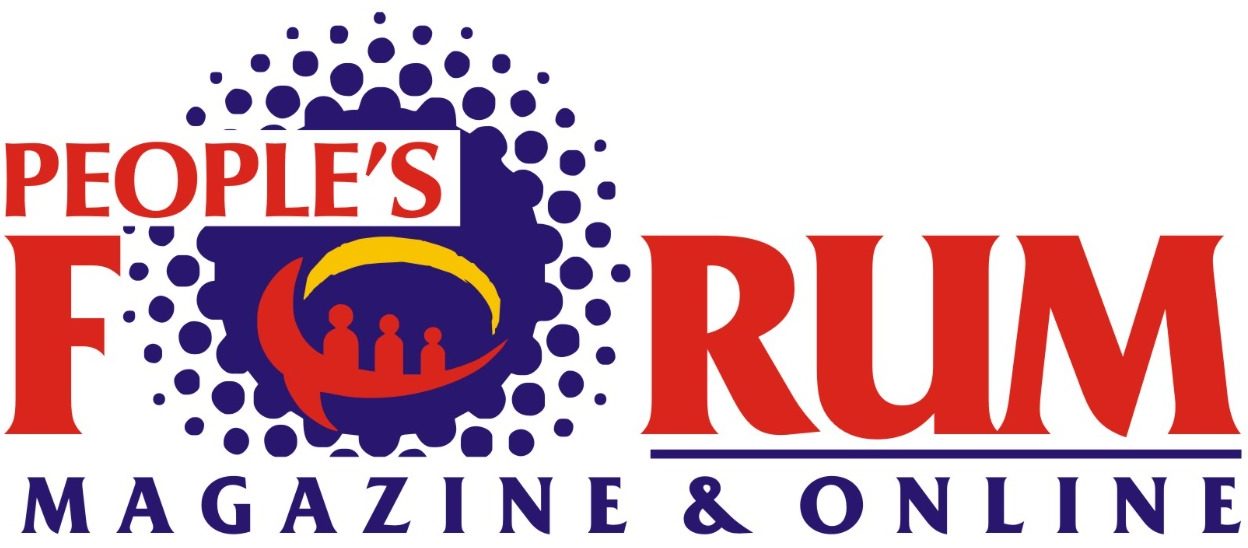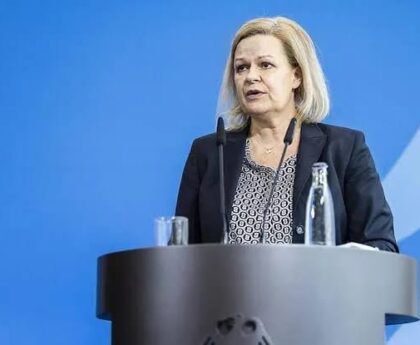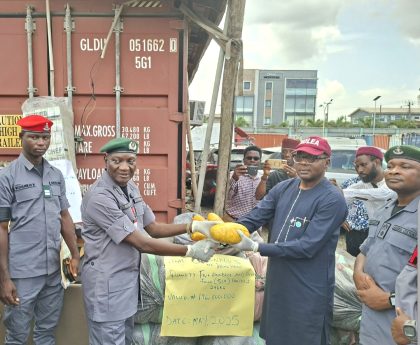The Nigeria Customs Service is set to implement the Time Release Study, TRS, as the service is already well equipped for it.
The implementation is expected to reduce cargo clearance time and facilitate trade in Nigeria.
Making this disclosure on Thursday in Lagos during the launching of World Customs Organization’s (WCO) assisted Time Release Study, the Comptroller General of NSC Bashir Adewale Adeniyi stated that TRS is a strategic and internationally recognised tool developed by the WCO for the clearance of goods from arrival until the physical release of cargo.
The Customs boss noted that in 2010, the Nigeria Customs Service (NCS) underwent a comprehensive TRS, conducted by the USAID MARKETS Project, focusing on the Apapa Port and Seme Border.
According to him, some 20 cross-cutting recommendations were made, including the development of an Authorized Economic Operator (AEO) programme, implementation of a Single Window system, purchase of additional cargo handling equipment, infrastructure repairs at the ports among others.
Adeniyi maintained that a second attempt was made in 2018 to conduct another TRS exercise, adding that it was unsuccessful due to the lack of proper collaboration among the relevant agencies.
He noted that the present exercise was built on the lessons learned from both the 2010 and 2018 attempts.
“We have made significant progress since then, including the implementation of paperless clearance and advancements in our AEO programs.
” Provisions under the new Customs Act now speak to the imposition of penalties to deter non-compliance.
“Today, we are joining other Customs Administrations in the world that have embraced the tools developed by the World Customs Organisation (WCO), to promote the growth of international trade.
“The WCO remains steadfast in its commitment to advancing customs procedures through various instruments and tools, such as the Revised Kyoto Convention (RKC) and the World Trade Organization (WTO) Trade Facilitation Agreement (TFA).
“Among these initiatives is the Time Release Study (TRS), developed to provide comprehensive insights into customs operations’ efficiency as the TRS in Nigeria, starting with TINCAN ISLAND Port, serving as the pilot location,” he stated.
The Customs boss explained that the TRS method is a systematic and standardised approach used to measure the total duration of time from the arrival of goods at the customs border until their release.
He further said that TRS initiative represented a critical step in the ongoing efforts to optimise the trading experience and customs operations in Nigeria.
Adeniyi added that for implementation of TRS, the NCS was deploying the AEO programme, Advanced Ruling, and establishing a Customs Laboratory as part of its ongoing efforts to facilitate trade and improve government revenue.
In his speech, the Secretary -General, WCO, Mr Lan Saunders, hinted that the fulfillment of TRS was based on the WCO methodology.
He stated that it would enabled Nigeria to comply with the requirement of Articie 7.6 of the WTO Trade Facilitation Agreement, TFA.
“The TFA encourages WTO members to measure and publish their average release time of goods periodically and consistently.
“TRS is being conducted as a diagnostic to find bottlenecks in the trade flow process factually and to take necessary measures to improve the effectiveness and efficiency of border procedures by reducing clearance time.
“TRS is an instrument with which Customs and other government agencies, along with private sector stakeholders, can measure the cross-border flow process related to imports, exports, and transit movement of goods periodically,” he explained.
According to Saunders, some of the benefits of TRS to include: improving and strengthening the efficiency of Customs administrations and other government agencies, allows Customs and other stakeholders to explore synergies.
He added that other benefits were :Creating a better conditions for accelerating the international movement of cargo subject to import, export, transit, or any other Customs regime related to the clearance and release of cargo.
The Minister of Finance , Mr Wale Edun, said that the implementation of the TRS would foster a business friendly environment whereby several countries in Europe and America would be attracted to bring cargo to Nigeria.
Represented by the Permanent Secretary, Ministry of Finance, Mrs Lydia Jafiya,
Edun seeks stakeholders collaboration in achieving success in the implementation of the TRS which would reduce time of doing cargo clearance and trade facilitation.
Minister of Industry Trade and Investment, Doris Uzoka-Anite, stated in her address that government will establish the Nigerian Trade Intelligence Office to enhance ease of doing business in Nigeria which would also assist Customs in trade facilitation.
The minister declared that the establishment of the Nigerian Trade Intelligence Office initiative would enhance trade and ease of doing business in Nigeria.
“The Trade Intelligence Office will be the national coordinator and focal point
for all trade related data and information in Nigeria.
“This office is set to leverage world class technology such as Artificial Intelligence, the Internet, and Big-Data to provide Nigeria with the ability to predict global market trends.
“This will enhance our local and global trading capacities thereby significantly enhancing trade and the ease of doing business in Nigeria, in line with President’s Bola Tinubu’s eight Point Agenda.
” Nigeria possesses some trade data, collated and held by agencies such as the Nigeria Customs Service, the Central Bank of Nigeria, and the Nigerian Bureau of Statistics.
” It is also fair to state that, a lack of
coordination amongst MDAs is hampering the availability of critical trade data
for both policy makers and investors, who require such trade information to
enhance trade and promote investment in Nigeria.
“This lack of coordination
continues to affect the
implementation of technological infrastructure for the administration of a comprehensive import/export supervision scheme.
“This in turn continues
to drastically increase the potential for revenue leakages through incorrect classifications, under valuations, incorrect computations, forex infractions, under
declaration, and incorrect origins amongst
many other infractions along the
trade value chain,” she stated.
She said that the ministry aspiration for the Trade Intelligence Office was to create a fully automated Centre of Excellence to employ top-tier talent and collaborate with
world-class institutions for the purpose of gathering and analyzing trade
intelligence.
The Minister said that the tracking technology would monitor cargoes, containers, and vehicles swiftly, without disrupting the flow of legitimate trade.
She said that the tracking technology would provide Nigeria with unparalleled, reliable import and export information and data, essential for effective planning and
ease of doing business.
Uzoka-Anite said that the Federal Ministry of Industry, Trade, and Investment has
also launched a One Stop Export Promotion Shop, titled the Domestic Export
Warehouse initiative (DEW) to support the activities of the Nigerian Custom Service in trade facilitation.
” DEW is a one-stop facility for the storage of products, packaging, pre-shipment inspection, and the fumigation of goods in preparation for their
transportation to the ports. In line with our quest to enhance trade and the
ease of doing business in Nigeria.
“This this one-stop facility will reduce the
challenges Exporters face in moving their goods from the hinterlands to the
ports.
” We are confident that this approach will reduce the challenges exporters face
in going through the shipping
process as well as improving the time
it takes to get export ready goods to the
port which is in line with this
Administration’s commitment to eliminate all bottlenecks hindering business,”Uzoka-Anite said.
PHOTO: From left to right – Mrs Lydia Jafiya, Rep. Minister of Finance, CGC, Comptroller Bashir Adewale Adeniyi, the Minister of Industry, Trade and Investment, Mrs Doris Uzoka-Anite,, Akutah Pius, CEO NSC, Rep. Minister of Marine and Blue Economy, Adegboyega Oyetola.




